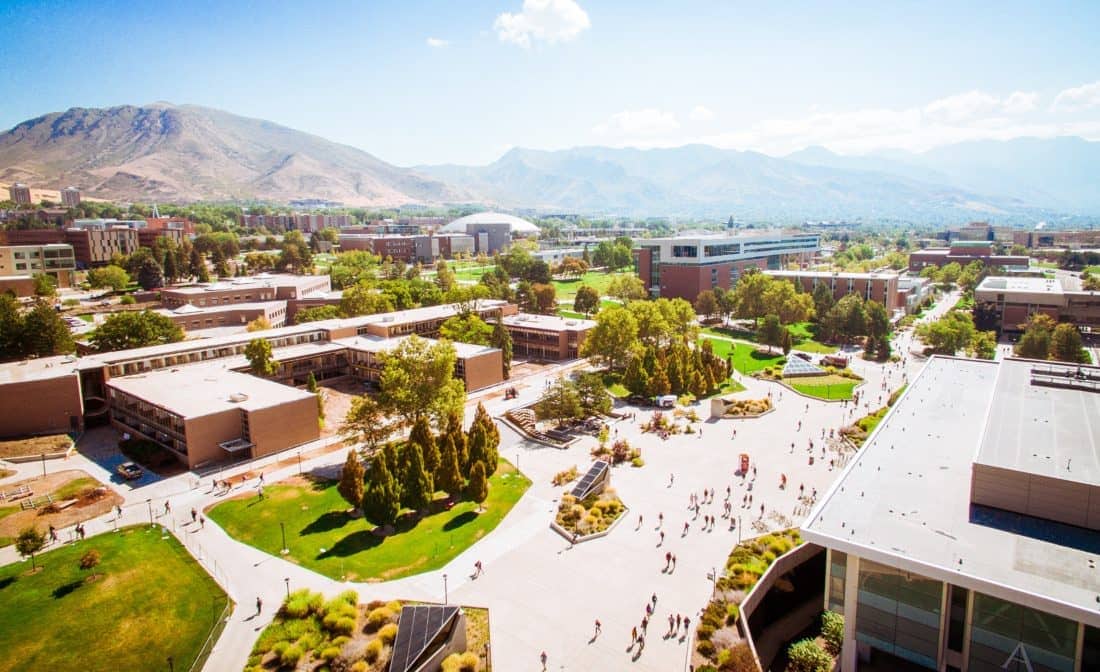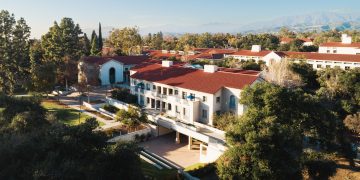Walking Across Campus: A Christian College Experience
From the start of my college search, I knew I wanted to study public relations in Indiana. Not wanting to burden my parents or myself with large payments or student debt, I had always assumed that I’d end up at a public school. It was after extensive research that three schools made the list: two public colleges and one private Christian college. At the time, I thought Anderson University was just a pipe dream, and the public schools were my only real options.
Then came my visit to the big public schools. I felt so small on the huge campuses. I got the sense that I wouldn’t receive the kind of attention from the staff and faculty I needed to thrive. I was convinced that despite my clear needs for a smaller school, I could not afford a private education and was fated to attend a big school.
Thankfully, my final campus visit at Anderson University changed that perception and made all the difference. Unlike the nervousness and anxiety I felt on the big campuses, Anderson’s campus made me feel welcome and excited. I could see myself on the paths in “the Valley,” the central spot on campus that connects students and faculty on their way to class, chapel, and events. The Communications department impressed me with the way it structured its programs. Best of all, later that day, I sat down for a one-on-one session with my financial aid counselor to determine if the education I desired could be made affordable. I soon learned something I never would have guessed: Anderson University offered 98% of students financial aid and was actually less expensive than a public school for my family. I left campus with a smile on my face and the determination to make it work.
Fast forward nearly a year later and I was already a part of the campus community. Registering for classes with a faculty advisor in the spring made class choices easy, and I was immediately able to start my mass communications classes in my first semester. At a lot of state schools, competition for a seat in a class is tight. I expected to be added to waitlists and save any experiential learning experiences for after freshman year. At Anderson University, however, those opportunities were available from the first day of class.
I took several Bible-based classes to learn more about ethics, the human experience, faith development, and leadership in the church as a central component of my liberal arts core. Even these classes outside my major remained small and closely knit, and sixteen years later, I’m still in touch with the faculty who shaped my undergraduate experience.
When you have a small class size of less than 500, it is easy to meet people at events, while dining on campus, in classes, or chapel. In my residence halls, making friends was easy. I lived with twelve women on my floor, which connected with a brother floor in an all-male dorm, and made lifelong friends. In fact, it was at a movie in “the Valley” on one hot, August day that I met my future husband. Friends for a year, we eventually started dating, fell in love, and were married after graduation.
At Anderson University, I found myself in a community where I belonged. Chapel experiences twice a week brought in local pastors, guest speakers, and worship artists. Students, faculty, and staff alike would go on stage to discuss how prayer, service, and ministry changed their lives. I joined a prayer ministry where we prayed for the campus community and the greater community of Anderson. I also got to join the Study Buddy ministry, where I read to local kindergarteners, and went on a Tri-S trip (a service and cultural program) to South Dakota’s Pine Ridge Indian Reservation.
There were also great opportunities for traveling abroad. Thanks to the Anderson University alumni who donate their time and resources, I was easily able to afford both the trip to Pine Ridge and a trip to Europe for a rich cultural experience. I loved it so much that my husband and I carried on the tradition by leading our first trip to London as part of a Vacation Bible School service trip in 2017.
The impact of Anderson University’s small campus community went beyond campus life, spiritual life, and the classroom. For three years, I had the opportunity to work for the director of the school’s University Communications department. Under his mentorship, I worked donor events, commencement, concerts, and was exposed to the world of media relations. The personal attention I received, a complement to my already great education, helped my résumé stand out among applicants. One week before graduation, I was offered a position as Anderson University’s web editor. Twelve years later, I had earned my master’s degree and worked my way toward director of content strategy and public relations. Now I hold my dream job as a faculty member for my alma mater serving the same department in which I was an undergraduate student.
So before you decide you CANNOT, first choose to believe you CAN. Research your options and visit the places you might think are out of reach. Christian schools can be affordable, and most offer a lot of financial aid and scholarship opportunities. You’ll get more than a great education. You’ll get unique opportunities that will help you grow and achieve your future goals.



